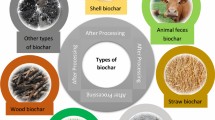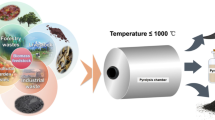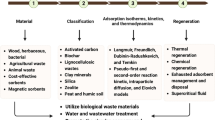Abstract
The selection of the supports for biomass immobilisation is of great importance to obtain a stable biofilm leading to a high nitrification efficiency. In this work five type of supports were assayed in external loop air-lift reactors: sand, limestone, basalt, pumice and poraver. The efficiencies of the supports were compared and discussed in terms of their surface-properties: surface free energy of interaction, surface charge, porosity and shape. The results showed that materials leading to low surface free energies of interaction and with less negative surface charges favour bacterial adhesion and the formation of stable biofilms. High porosities are also relevant for bacterial colonisation. However, irregular shaped particles may promote the erosion of attached biomass.
Similar content being viewed by others
Author information
Authors and Affiliations
Additional information
Received: 15 September 1997
Rights and permissions
About this article
Cite this article
Teixeira, P., Oliveira, R. The importance of surface properties in the selection of supports for nitrification in airlift bioreactors. Bioprocess Engineering 19, 143–147 (1998). https://doi.org/10.1007/s004490050495
Issue Date:
DOI: https://doi.org/10.1007/s004490050495




